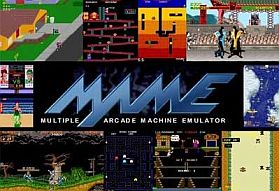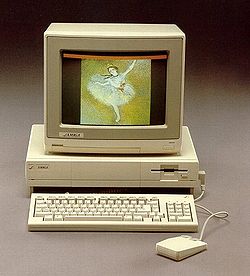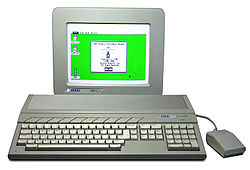[Guide] The PSP Emulators Bible! |

Benvenuto Visitatore ( Log In | Registrati )
[Guide] The PSP Emulators Bible! |
 Gruppo: Membri
Messaggi: 266 Iscritto il: Fri 25 September 2009 - 16:06 Utente Nr.: 6 Feedback: 0 (0%) 
|
Messaggio
#1
 Monday 4 July 2011 - 02:10 Monday 4 July 2011 - 02:10
The PSP Emulators Bible  Index Chapter 1: 8 bit computers Chapter 2: 8 bit consoles & handhelds Chapter 3: 16 bit computers Chapter 4: 16 bit consoles & handhelds Chapter 5: 32 bit handhelds Chapter 6: Arcade systems Chapter 7: Other emulators PSP Emulators Bible - Official thread Introduction One of the most interesting sides of Homebrew software are certainly emulators, they allow us to bring back to life on our PSPs a lot of glorious past game machines. Emulators themselves are very often a motive which leads to buy a PSP, especially for “old school” gamers; in fact, even if, as of today the scene is filled with the so-called “open consoles” (such as Wiz, Caanoo or Dingoo and Pandora), there’s no doubt that the PSP is still one of the most powerful and convenient solutions for people who want to start exploring this fantastic world. And, even more considerably, this one remains the only handheld console to guarantee a full-speed and as good as perfect emulation of the Playstation One/PSX, thanks to the built-in emulator (the so-called POPS). This phenomenon, anyway, is costantly growing; a lot of people are starting to approach this world for the first time, asking themselves a lot of justifiable questions (the most common one is, as a reference: will it be hard to emulate this or that one machine?) or being very curious about this, also thanks to the increasingly common Chinese PMPs, which promise (at least on paper) a fantascientific emulation of lots of devices, only to be later found to be the usual low-cost devices, and with the usual emulators (often ported from the PSP ones) which we’re used to by now. And it's undoubted that today retrogaming is as popular as ever. There's no home or handheld console which doesn't have a store used to buy old titles, or old glories, to say it better. Evergreen videogames, which as of today still represent an important source of income for their respective software houses. We shouldn't be surprised, then, if the phenomenon is spreading fast, involving more and more players. Not only the "old school" ones, who lived through the times at issue, but also the younger ones, anxious to make up for the wasted time or maybe curious to try out the famous past machines people talk about so much. This "bible", then, was born for this reason, to try clearing the doubts which novice users may come across, to sum up everything that exists on PSP and that can be emulated more or less fine on our beloved handheld. At this point, someone could say that the topic has already been covered elsewhere, so why writing another guide? Well, first of all because I love the topic and I had the desire to write something about it, then because I wanted to try writing something conversational and exhaustive about this, while keeping a "tongue-in-cheek" and pleasant tone. The primary objective was therefore to deliver to the Go!PSP userbase a complete tool, from which to understand instantly which the latest version of you favorite emulator is, whether more performing emulators exist or not, and finally to group in a standalone guide all the existing PSP emulators (apart from some ancient ones, obsolete by now). The amount of emulable systems on our PSPs, among home consoles, handhelds and computers, is truly high and for this reason it's necessary to proceed systematically. In this guide we'll follow a very precise order, starting from 8bit systems (computers and consoles) to proceed with 16bit ones (computers and consoles, too) and ending with 32 and 64bit ones. Next to the title of each emulator (which will be indicated in red) you'll be able to click on the INFO button and you'll be sent to the appropriate Wikipedia page, so the most curious people or the ones who simply wish to acquire the highest possible amount of information available about that system, will only need to click on the aforementioned button. At the bottom, instead, you'll find the name of the respective PSP emulator in green, and clicking on the download button will allow you to download the most updated version. We state from the beginning that if a "signed" version of an emulator exists, it will run on whatever PSP with whatever firmware, official or custom, as if it were a Sony-created software. In the case, instead, that a "signed" version of the emulator is not available, you'll need a HEN or Custom Firmware to run it on your PSPs; I remind those of you who didn't know, that as of today (6.39 Firmware) it's possible to launch Homebrew and install Custom Firmwares on every PSP (obviously with different procedures for which you can refer to this exhaustive guide, depending on the PSP model you own). Before we start, a few "evergreen" advice: ALWAYS read the readme.txt included with each emulator to know the buttons to use and the relative button combos to activate all the functionalities of the software, apart from other useful information, such as the compatibility of the emulator itself. It might seem some trivial advice, but I assure you that the majority of people has never read a readme in their whole life. This guide, besides, doesn't guarantee to be exhaustive on the subject and represents just my personal point of view. It's a good thing to specify from the beginning that usually the folder you install emulators into doesn't change and is always "X:\PSP\GAME" (where X is obviously your memory stick). Furthermore, I remind you that using an emulator is not absolutely legal per-se, but using copyrighted material downloaded from the internet is not. THe following article wants to just have an informative purpose about the retrogaming phenomenon, and doesn't absolutely intend to bring offense to the respective copyright holders or to justify piracy. After this short, and necessary, premise I shall say that the moment has come to start examining the emulators available for the small Sony handheld! -------------------- No matter the man, we all wear masks... Either on our faces or over our hearts. Vuoi scaricare ISO e ROMz delle console pił recenti? Clicca qui o qui per trovarne a bizzeffe! (Uno script non fa vedere questa frase dai mod) Pensieri: » Click to show Spoiler - click again to hide... «  |
 |
 Gruppo: Veterani
Messaggi: 1,164 Iscritto il: Mon 24 August 2009 - 15:50 Da: Nibelheim Utente Nr.: 4  Playstation Network TAG: Playstation Network TAG:silvio93 Feedback: 0 (0%) 
|
Messaggio
#2
 Tuesday 26 July 2011 - 17:40 Tuesday 26 July 2011 - 17:40
16-bit Computers  And here come my heartfelt reasons. When I have to talk about the Amiga, I admit it, I can't be objective; I can state without any fear of being wrong that I LOVE this computer, completely, as if it were a close relative, a brother or a sister. Maybe it's the most complete expression of the genius, a computer which, more than every other one could create generations of talented people, people that nowadays work in the "top level" videogame industry. There's no prominent figure in said industry who didn't go through the Amiga during the '80 and '90 decades, I assure you. Let's not even talk then about the subcultures generated by this computer, such as the Demo Scene ( Amiga's name is also tied to its extensive videogame collection, which saw the light during its long life. Unforgettable series such as Shadow of the Beast, Turrican, Lotus Esprit Turbo Challenge, Lemmings, Sensible Soccer, Cannon Fodder, Alien Breed, the Lucas and Supercars adventures or the several Pinball Dream titles, Pinball Fantasies from Digital Illusions CE, the Cinemaware games, the Delphine adventures (especially Future Wars!) are gems which still today deserve to be enjoyed and replayed. Unfortunately, and I mean it, much to my regret I have to acknowledge that, as of today, with the probable expection of Pandora (even if it hasn't a definitive emulator either) no portable console can emulate the machine at hand perfectly. First of all, I think it's an hardware complexity issue; the Amiga was a computer with many dedicated chips, which I don't imagine as being that simple to emulate in an optimal way. For this reason, for completeness about the subject, I have to bring to the attention of the interested people that the best portable emulator (from a speed point of view, since the PSP one is more feature-filled) is the privilege of Wiz and Caanoo; on the GPH consoles, surely enough, the majority of games runs well or very well, almost with no frameskip, obviously this depends on the requisites each single game had. What about the PSP? It's quite fine, I'd say. Thanks to the tireless efforts of FOL and his team, the PSP-UAE reached an excellent performance. Let's say that the majority of games will be playable with a frameskip of 1 or 2 with sound enabled, and the final result won't be too far away from the original (I say it again, it depends on the game!). As far as the several adventure games are concerned, instead, you'll be able to enjoy them with not many issues. I replayed from the beginning to the end the fabulous Future Wars without any hitch and with savestate support. In any case it's a must-have piece of software to keep in whatever Memory Stick, in view of the importance of the emulated machine and its enormous game library. A little advice to install this emulator correctly: the latest available version, 0.80 beta 13, contains in its archive just the EBOOT.PBP. Download an older release in order to get the correct folder structure and then place your 1.3 kickstart renamed to Kick.ROM in the Kicks directory. *******  Like every King who wants to be called as such, the Amiga had its opponents and the Atari-St was surely enough the strongest one to contend the Amiga's crown, without too much success. This powerful Atari computer has been a long-time favorite for musicians, since it had built-in MIDI ports, allowing everyone, professionals or not, to set-up a personal music studio without spending that much. Unlike the Amiga, then, the Atari-ST couldn't rely on dedicated chips, such as the sound one, so its native audio was more or less like the C64 one. It had plenty of arrows in its bow though; it was less expensive than an Amiga or Mac and it shipped with 512 KBs of RAM from the factory, apart from the already mentioned built-in MIDI ports. As far as videogaming is concerned, very often games were released both in Amiga and Atari-ST versions, but the Amiga ones almost always got better scores in periodic publications, mainly because of the better audio component. The PSP emulator is called CaSTaway and works very well, since it makes almost all games run full-speed. To make it work you've to get ahold of the Atari ST TOS.ROM file and place it in the ATARI-ST directory.  |
 Davi92 [Guide] The PSP Emulators Bible! Monday 4 July 2011 - 02:10
Davi92 [Guide] The PSP Emulators Bible! Monday 4 July 2011 - 02:10
 MJ2332 8-Bit Computers
C64
Okay, I'll admit it, ... Friday 8 July 2011 - 10:18
MJ2332 8-Bit Computers
C64
Okay, I'll admit it, ... Friday 8 July 2011 - 10:18
 MJ2332 8-bit Consoles and Handhelds
Magnavox Odyssey
... Sunday 24 July 2011 - 11:25
MJ2332 8-bit Consoles and Handhelds
Magnavox Odyssey
... Sunday 24 July 2011 - 11:25
 MJ2332 16-bit Console and Handheld
Super Nintendo
The... Tuesday 26 July 2011 - 17:44
MJ2332 16-bit Console and Handheld
Super Nintendo
The... Tuesday 26 July 2011 - 17:44
 MJ2332 32-bit Handheld
Gameboy Advance
The Gameboy Ad... Tuesday 26 July 2011 - 17:51
MJ2332 32-bit Handheld
Gameboy Advance
The Gameboy Ad... Tuesday 26 July 2011 - 17:51

 Davi92 Arcade
CPS1 and CPS2
Acronym of Capcom Play Sy... Tuesday 26 July 2011 - 18:31
Davi92 Arcade
CPS1 and CPS2
Acronym of Capcom Play Sy... Tuesday 26 July 2011 - 18:31
 Gid Other Emulators
S.C.U.M.M.
Acronym of Script C... Wednesday 3 August 2011 - 12:07
Gid Other Emulators
S.C.U.M.M.
Acronym of Script C... Wednesday 3 August 2011 - 12:07  |

|
Versione Lo-Fi | Oggi è il: Wed 24 April 2024- 21:42 |